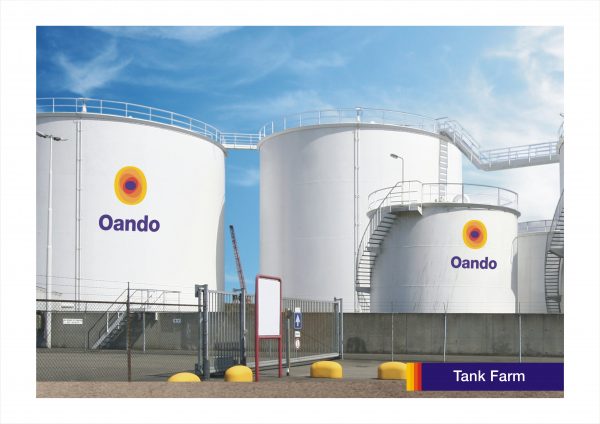Oceans Day 2021: Nigeria’s Efforts Towards Clean Territorial Waters
 By Yusuf Odejobi
By Yusuf Odejobi
As the international community celebrated 2021 World Oceans Day on Tuesday June 8, last week, stakeholders in Nigeria’s maritime sector have called for more awareness in maintaining the sanctity of the oceans as they perceive that the general public lack knowledge on how to preserve and clean the ocean, rivers and seas in the country.
The theme for this year is “The Ocean: Life and livelihoods”, targeted to inform the public on the impact of human actions on the ocean and also raise global awareness on the benefits humans get from using the ocean and our individual and collective duty to use its resources sustainably.
Someone might ask why the oceans are so important to livelihood. They are, quite literally, the lungs of our planet, providing most of the oxygen we breathe, food, recreation, medicines and much more.
Oceans cover more than 70% of the planet, produce at least 50% of the world’s oxygen, are home to most of the Earth’s biodiversity and are the main source of protein for more than a billion people. They also absorb about 30% of carbondioxide produced by humans.
The world’s marine and coastal resources and industries which transport 80% of all the goods people need, with an estimated value of $2.5 trillion per year, or about 5% of global GDP.
Maritime sector is one of those industries forming an integral part of the ocean space with Nigeria having a coastline of about 852km and a maritime space of about 170,400sqkm, it is imperative to know how far the nation has protected it’s marine environment, where we are in keeping our territorial waters clean against oil spills, chemicals, sewage, ballast water from ships and our preparedness and response to pollution.
Speaking with MMS Plus on World Ocean Day, the Director of Marine Environment Management (MEM) Department, Nigerian Maritime Administration and Safety Agency (NIMASA), Mr. Mudi Isa, revealed that within the year under review, the department has responded to five oil spills in Lagos alone.
According to Isa, MEM respond to spills less than 10 barrels or drums of oil within the nations’ territorial water.
His words: “Immediately we get alert we deploy our people to go in with containment booms to cover the area and prevent the spills from spreading out. We have our skimmers to pack the spills into drums, load it into our boats then take it back to base to be stored in oily waste tanks which are situated in Kirikiri, Lagos and in Warri, Delta State.”
According to him, MEM’s statutory responsibility is not only to ensure a clean marine environment, but the department also has the responsibility of protecting it and this done through the implementation of all relevant International Maritime Organization (IMO) conventions.
MEM focuses primarily on the annexes under International Convention for the Prevention of Pollution from Ships (MARPOL) which are the convention on the prevention of marine pollution by dumping of wastes, convention on control of pollution by noxious liquid substances, the convention for the control and management of ships’ ballast water and the International convention relating to intervention on the high seas in cases of oil pollution casualties which are all domesticated under the Nigerian law.
Isa noted that the lead agency to respond to oil spill is the National Oil Spill Detection and Response Agency (NOSDRA) but NIMASA is situated in the National Oil Spill Contingency Plan (NOSCP) in tier three and two which they activate and participate.
Speaking on ballast water management, Isa revealed that the department monitors ship coming into the country, through their portal, information’s such as the quantity of ballast water and country of origin are provided to enable it’s officers know the chemicals to be used ahead so it doesn’t affect the species In Nigerian water.
“An example is the case of water hyacinth, it was actually brought from Brazil by vessels sometimes in the late 80s while part of it came from Cotonou when they were working on their inland waters, some of it broke into the oceans and infested the inland waters.”
“Vessels that come into the port report to Nigerian Ports Authority (NPA), then NPA will provide the service of collecting the waste, treat it with chemicals, oxygen or carbon dioxide before it’s discharged into the water far away from Nigerian territorial water. We have the best reception facility in Africa through NPA for collection of plastics, oily waste from ships, ballast water and also sulphur content in the fuel oil used on board ships.” he said.
Speaking on efforts to reduce marine litter, he explained the revised Marine Litters and Micro Plastic Action Plan was recently launched virtually by the Director General of NIMASA, Dr. Bashir Jamoh due to COVID-19 protocols.
He said that revised plan has also been broaden to include stakeholders like National Inland Waterways Authority (NIWA), NPA, private organizations, NGOs and government ministries.
“We have already donated rakes, shovels, plastic waste management disposal bins, etc to various local communities and also did some trainings. Also, we gave an action plan to all littoral states to clean up their communities in conjunction with their Local government in conformity with MARPOL to exit garbage.”
“We’re also doing sensitization on how to handle plastics, starting from primary schools.”
He added that with the revised plan, the department has moved away from yearly removal of wrecks and now looking at recycling the wrecks and wastes in partnership with the manufacturers association. He said a national guideline has been brought up on wrecks removal which will involve all ministries and parastatals.
Meanwhile, the President of Women’s International Shipping and Trading Association (WISTA) Nigeria, Mrs. Eunice Ezeoke, stressed that beyond Nigeria partaking in the global celebration, the citizens, especially those in coastal areas should be enlightened on ocean resources and the importance of waste management.
“It is very important that the populace know how dependent clean water is for our survival, as there’s a kind of disconnect between the general public and the knowledge of how to preserve the nations territorial water.”
She urged the federal government to do a nationwide sensitization as the wastes that are thrown into the ocean are non-biodegradable which the species in the water can’t digest and the threaten aquatic life.
“When you drink sachet or bottle water, you don’t throw it into the drainage because when the sachet nylon, chemicals and plastic bottle water ends up in the ocean through the canals, our marine habitats accidentally consume them, most of the time they’re hooked and it often kills them.”
“Sometimes, we buy these fishes to eat, those litters in them are absorbed into our bodies and over time leads to different kinds of diseases. That’s why people who consume such fishes have increase in cancer, kidney failure, liver disease and so on.” she said.
Ezeoke, therefore, recommended the use of bottles and papers because they are items that can be recycled and can cause no damage or less to the marine habitats.
She also lamented the unregulated fishing by foreign vessels in the nation’s territorial waters, calling for adequate policing and monitoring to curb poaching in the country.
In the same vein, the Chairman, Nigerian Ports Consultative Council (PCC), Otunba Kunle Folarin emphasized that the Nigerian citizens and the government must have a sense of responsibility towards keeping the oceans clean.
He added that it is high time everyone starts looking at maintaining the sanctity of the oceans as the survival of Nigerians depends on it.
“We’re exploiting mineral resources in the ocean, we’re drilling for oil and also conducting trade and commerce internally and externally. That is why the issue of wrecks and pollution comes in and we should be discussing all these as we celebrate oceans day.” he said.
He recalled a case of Shell pollution on Ogoni land which for several years now has not been solved. It’s only in the past few years an attempt has been made to clean up the pollution caused by the oil spill in that area.
According to him, the consequences of such spills are great as there would be no marine life in that area even as the host community rely on the water for food and economic activities.
The world marked oceans day last week but Nigeria should be concerned about the safety of the oceans, rivers and lakes as the nation hopes to fully harness its blue economy potentials.







